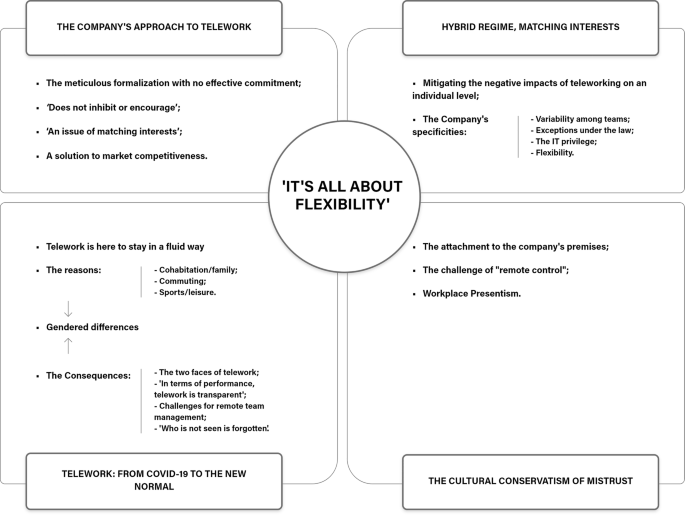
"Teleworking, initially a necessity during the COVID-19 pandemic, requires a nuanced understanding of its impact on work-life balance and individual experiences."
"As telework became compulsory for many, employees faced new challenges such as managing distractions at home, adverse ergonomics, and decreased interaction with colleagues."
The COVID-19 pandemic prompted a global shift towards telework, with many employees forced to adapt without adequate preparation. This transition affected work-life balance, presenting new challenges such as adverse ergonomics, distractions, and diminished social interaction. The study explores these experiences within a national company post-pandemic, looking at how teleworking policies and practices influence employees' integration of work and family life. These tensions highlight the importance of understanding both organizational context and individual experiences in shaping work-life dynamic.
Read at Nature
Unable to calculate read time
Collection
[
|
...
]